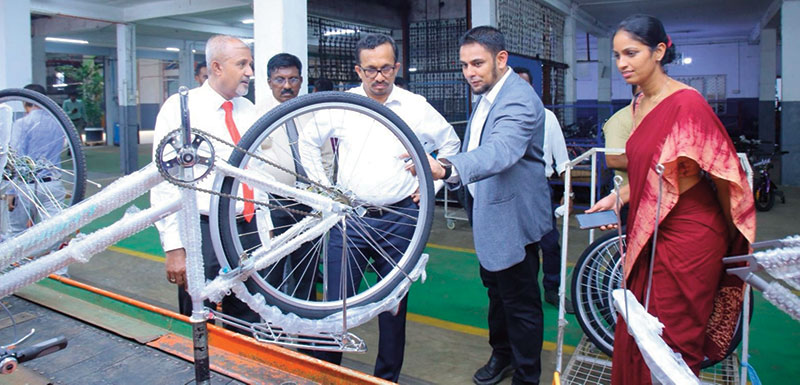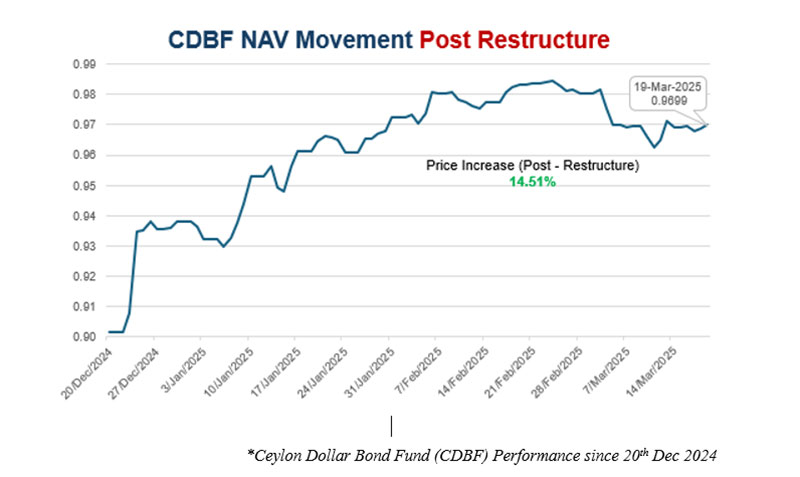Business
Research, insights add value to Circular Economy Workshop for apparel sector

In response to the multifaceted challenges posed by resource scarcity, environmental impacts and economic concerns, Monash University in partnership with the Joint Apparel Association Forum (JAAF) initiated an insightful Workshop on the Circular Economy (CE) and its profound implications for the apparel industry. The workshop, held recently, served as a catalyst for a collaborative dialogue among prominent apparel manufacturers, researchers and stakeholders.
The central theme underscored the imperative transition from a linear “take-make-use-dispose” business model to a circular one characterized by circular economic flows. This paradigm shift, embedded in the CE ethos, aims to minimise resource inputs and emissions across organizations and their supply networks. The CE approach places a strong emphasis on slowing, narrowing and closing resource loops, thereby enhancing efficiency and significantly reducing waste. Notably, CE practices offer a sustainable and environmentally conscious alternative to traditional production methods.
“”Embracing a circular economy is no longer optional; it’s imperative,” emphasized Professor Amrik Sohal from the Department of Management at Monash Business School, Monash University, a guest speaker at the Workshop. “Sri Lankan companies have been instrumental in driving this change. Yet, the journey to a circular economy, especially for forward-thinking enterprises is challenging. A collective dialogue on adopting circular economy practices is particularly crucial for the apparel industry, a major contributor to global waste and environmental impact.”
The workshop served as a unique platform that brought together leading apparel manufacturers and researchers to exchange insights, share current CE practices and discuss future plans for advancing both theoretical and practical knowledge related to CE in the Sri Lankan Apparel Industry.
This collaborative effort gains particular relevance and timeliness in light of the European Union’s Corporate Sustainability Reporting Directive (CSRD). Legally enacted in 2023, the CSRD is set to commence applicability for larger corporations in the year 2024. The workshop’s discussions were significantly intertwined with the objectives outlined in the CSRD, particularly addressing the EU’s ambitious goal to transition towards more circular apparel production practices by the year 2030.
Operations & Supply Chain Strategy at Loughborough University Professor Jan Godsell opined that, “Apparel companies must redefine their business models, embracing sustainability and ethical practices to navigate the evolving landscape. In the face of these challenges, the future belongs to those who innovate and transform, aligning with evolving regulatory landscape in the EU. We are happy to partner to take this path forward.”
The Workshop organized by Monash University Australia, garnered support from the Made Smarter Innovation and UKRI: ESRC funded InterAct initiative. Local partnerships were instrumental with JAAF, Moratuwa University and the Postgraduate Institute of Management (PIM) actively contributing to the success of the workshop.
The JAAF-led Workshop was a testament to the industry’s commitment to embracing Circular Economy principles. By fostering collaboration, sharing insights and addressing challenges head-on, the groundwork was laid for a more sustainable and circular future for the apparel industry in Sri Lanka and beyond. The Workshop’s outcomes are expected to resonate as a guiding force for the industry’s evolution towards a more environmentally conscious and economically viable Circular Economy.
Business
Industry and Entrepreneurship Development Minister Handunneththi’s visit to Lumala highlights key industrial concerns

With the aim of assesing the current challenges faced by local industrialists and explore avenues for government support, Minister of Industry and Entrepreneurship Development Hon. Sunil Handunneththi visited City Cycle Industries Manufacturing (Pvt.) Ltd., widely known as Lumala, on March 24 at its factory in Panadura.
During the visit, Minister Handunneththi engaged with senior officials and employees to understand their concerns and operational difficulties. In a statement shared on social media, the Minister acknowledged the pressing challenges affecting Sri Lanka’s manufacturing sector and emphasized the government’s commitment to providing swift and effective solutions.
Minister Handunneththi further reiterated the government’s intent to position local manufacturers as key stakeholders in Sri Lanka’s economy by addressing regulatory hurdles, market imbalances, and supply chain constraints.
The visit comes amid growing concerns from Lumala employees and management regarding the state of Sri Lanka’s bicycle manufacturing industry, in the backdrop of facing significant challenges, including an influx of imported bicycles and components that circumvent regulatory checks. In addition, the high taxes on raw materials used in local manufacturing has further exacerbated production costs, making it difficult for domestic manufacturers to remain competitive.
Earlier this year, Lumala employees called for urgent government intervention to address these challenges, warning that ongoing financial strain could lead to further shutdowns of critical production units, job losses, and setbacks to the broader industrial ecosystem. With a local value addition of 50-70 percent verified by the Ministry, its workforce remains hopeful that government action will help achieve an ethical manufacturing industry.
Lumala, a household name in Sri Lanka’s bicycle industry, has been a key player in sustainable mobility solutions for over 35 years. The company was recently honored with the Best National Industry Brand award under the Large-Scale Other Industry Sector category at the National Industry Brand Excellence Awards 2024.
With a production capacity of 2,000 bicycles per day and a workforce of 200, Lumala continues to cater to both domestic and international markets, producing a diverse range of bicycles, electric bikes and light electric vehicles. In line with Sri Lanka’s goal to expand forest cover to 32 percent by 2030 and cut GHG emissions by 14.5%, Lumala is actively contributing to this mission—both as a company and through its diverse range of products.
As Sri Lanka works towards strengthening its local manufacturing sector, Minister Handunneththi’s visit signals a crucial step toward addressing industrial concerns and reinforcing government support for sustainable and competitive domestic production.
Business
New SL Sovereign Bonds win foreign investor confidence

Sri Lanka’s country rating was upgraded from ‘Restricted Default’ to ‘CCC’ following the successful exchange for the new International Sovreign Bonds (SL ISBs) during December 2024. The three types (03) of exciting new sovereign bonds have restored foreign investor confidence.
The Central Bank of Sri Lanka (CBSL) has performed a remarkable role in guiding the economy out of default status and restored economic stability, and gained Sri Lanka a non-default Country Rating of ‘CCC’. Among the key achievements of CBSL, have been to reduce treasury interest rates under 9% and stabilize the currency while rebuilding foreign reserves to $ 6Bn.
SL offers four Macro Linked Bonds (MLBs) linked to GDP growth, a Governance Linked Bond (GLB) and a short term, Fixed Coupon Bond for unpaid Past Due Interest (PDI). The MLBs offer variable returns depending on SL’s GDP growth from 2024 to 2027, (e.g. haircuts can vary between 16% to 39%). The GLB interest can vary depending on meeting 15.3% and 15.4% of Total Revenue/ GDP thresholds in 2026 and 2027 respectively. The PDI bond offers a fixed coupon of 4% until 2028 and trades at around $94.
This combination of unique, variable returns offers global investors an exciting opportunity to capitalize on SL’s economic revival and US interest rate movements. Sri Lanka’s economic resurgence in 2024 was promising, with a 5% GDP growth rate. With improving investor confidence, SL ISB daily turnover now exceeds $10mn.
The Ceylon Dollar Bond Fund (CDBF) is the only USD Sovereign Bond Fund that is exclusively invested in SL ISBs with Deutsche Bank acting as the Trustee and Custodian Bank. The Fund reported returns of 53% in 2023 and 39% in 2024.
We invite foreign investors to enter CDBF while Sri Lanka is rated at ‘CCC’ and consider realizing their investment upon SL reaching a Country Rating of ‘B- ‘. Other advantages of CDBF are, the ability to withdraw anytime and being tax exempted.
Ceylon Asset Management (CAM), the Fund Manager, has commenced an advertising campaign to promote the CDBF to the Sri Lankan Diaspora, South Asian, Middle Eastern and Australian Investors. CAM is an Associate Company of Sri Lanka Insurance Corporation (SLIC) and licensed under the Securities and Exchange Commission of Sri Lanka Act, No. 19 of 2021.
Meanwhile, the Ceylon Financial Sector Fund managed by CAM emerged as the top performing rupee fund in Sri Lanka during 2024, with a return of 64%. Investors can find out more on www.ceylonassetmanagement.com or write to us on info@ceylonam.com.
Past performance is not an indicator of the future performance. Investors are advised to read and understand the contents of the KIID on www.ceylonam.com before investing. Among others investors shall consider the fees and charges involved.(CAM)
Business
Share market plunges steeply for second consecutive day in reaction to US tariffs

CSE plunged at open, falling for the second consecutive day yesterday, down over 300 points in mid- morning trade.US President Donald Trump has imposed a 44 percent tax on Sri Lanka’s exports in an executive order which he claimed, spelt out discounted reciprocal rates for about half the taxes and barriers imposed by the island on America.
As a result both indices showed a downward trend. The All Share Price Index dropped 300 points, or 2.32 percent, to 15,294.94, while the S&P SL20 dropped 101 points, or 2.71 percent, to 4,517.37.
Turnover stood at Rs 3.1 billion with six crossings. Those crossings were reported in Sampath Bank which crossed 1.6 million shares to the tune of Rs 181 million and its shares traded at 109, JKH 4.1 million shares crossed to the tune of 80.5 million and its shares sold at Rs 19.5.
Hemas Holdings 400,000 shares crossed for Rs 45.6 million; its shares traded at Rs 114, CTC 25000 shares crossed to the tune of Rs 32.2 million; its shares traded at Rs 1330, Commercial Bank 200,000 shares crossed for 27 million; its shares traded at Rs 135 and TJ Lanka 157,000 shares crossed for Rs 20 million; its shares traded at Rs 46.
In the retail market top six companies that have mainly contributed to the turnover were; Sampath Bank Rs 296 million (2.9 million shares traded), JKH Rs 220 million (11.2 million shares traded), Haylays Rs 195 million (142,000 shares traded), HNB Rs 151 million (519,000 shares traded), Commercial Bank Rs 138 million (1 million shares traded) and Central Finance Rs 129 million (735,000 shares traded). During the day 218 million shares volumes changed hands in 22000 transactions.
It is said the banking sector was the main contributor to the turnover, especially Sampath Bank, while manufacturing sector, especially JKH, was the second largest contributor.
Yesterday, the rupee opened at Rs 296.75/90 to the US dollar in the spot market, stronger from Rs 296.90/297.20 on the previous day, dealers said, while bond yields were up.
A bond maturing on 15.10.2028 was quoted at 10.35/40 percent, up from 10.25/30 percent.
A bond maturing on 15.09.2029 was quoted at 10.50/60 percent, up from 10.45/55 percent.
A bond maturing on 15.10.2030 was quoted at 10.60/70 percent, up from 10.30/65 percent.
By Hiran H Senewiratne
-

 Business2 days ago
Business2 days agoStrengthening SDG integration into provincial planning and development process
-

 News6 days ago
News6 days agoBid to include genocide allegation against Sri Lanka in Canada’s school curriculum thwarted
-

 Sports7 days ago
Sports7 days agoSri Lanka’s eternal search for the elusive all-rounder
-

 Sports3 days ago
Sports3 days agoTo play or not to play is Richmond’s decision
-

 Business13 hours ago
Business13 hours agoNew SL Sovereign Bonds win foreign investor confidence
-

 News7 days ago
News7 days agoComBank crowned Global Finance Best SME Bank in Sri Lanka for 3rd successive year
-

 Features7 days ago
Features7 days agoSanctions by The Unpunished
-

 Features7 days ago
Features7 days agoMore parliamentary giants I was privileged to know

















